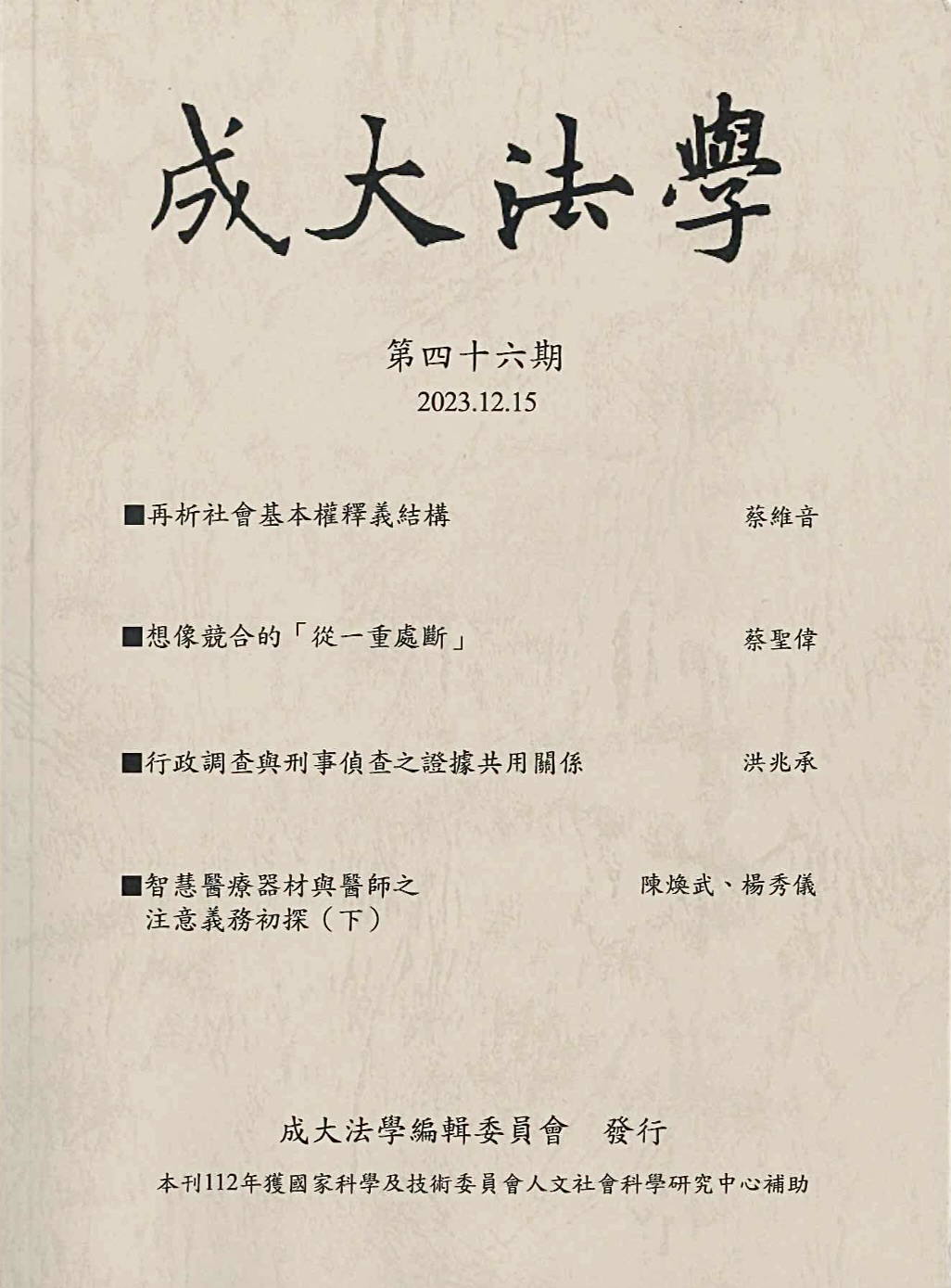前期出版
前期出版
頁數:113﹣184
行政調查與刑事偵查之證據共用關係
The Relationship of Sharing-evidence between Administrative Investigations and Criminal Investigations
研究論文
作者(中)
洪兆承
作者(英)
Chao-Cheng Hung
關鍵詞(中)
行政調查、刑事偵查、不自證己罪特權、令狀原則、協力義務
關鍵詞(英)
Administrative Investigation, Criminal Investigation, the Warrant Principle, Privilege against Self-Incrimination, Obligation to Co-Operate
中文摘要
在現代社會中,立法者經常以行政和刑事複合的管制模式,以求能夠有效的打擊犯罪。故在程序上,行政調查與刑事偵查也經常並行為之,甚至也必須互相合作。然而由於行政調查和刑事偵查兩者目的不同,故所要求的程序保障也有可能發生差異。此時這樣的構造差異是否可能導致兩程序之間,在進行互相合作,譬如交換證據資料時,是否可能會導致原本需要適用刑事偵查程序才能取得的證據,變成可直接透過交換從行政機關處取得,而出現規避刑事訴訟程序的情形?若真的出現規避的情形,是否會進一步影響證據在刑事訴訟中的證據能力?此均為必須思考的問題。本文嘗試分析我國的相關見解,並以日本法作為比較對象,最後並試圖針對程序間證據可否共用的基準,提出一個解決的基本方向。
英文摘要
In modern society, legislators often use a combination of administrative and criminal control models to effectively combat crimes. Therefore, in terms of procedures, administrative investigation and criminal investigation often work in parallel, and even have to cooperate with each other. However, due to the different purposes of administrative investigation and criminal investigation, the procedural guarantees may also differ. Is it possible that such a difference may lead to circumvention of the criminal process when cooperating with each other, for example, in the exchange of evidence? Will such a situation cause the issue of the Exclusionary Rule in criminal procedure? This article attempts to analyze the relevant views in our country and Japanese law, and concludes with an attempt to propose a basic direction for resolving the issue for the mutual use of evidence between parallel procedures.
線上閱覽
全文下載get_app
1.全文公開下載




